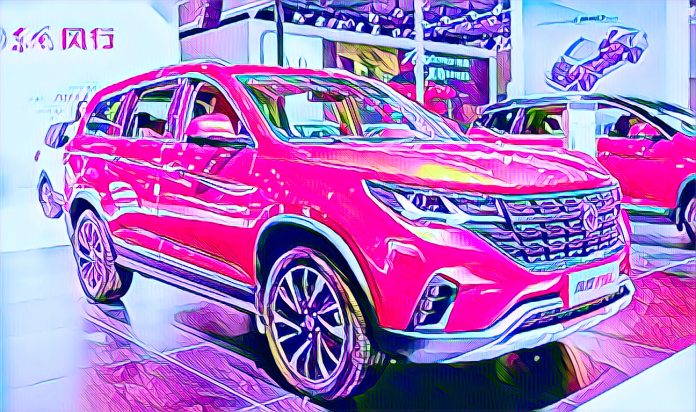Nigeria’s automotive industry, valued at $210 million, lags behind those of Morocco, South Africa, and Egypt. The primary issues include low demand for locally-made vehicles and a heavy reliance on imported second-hand cars. Statistics reveal that Nigeria produced approximately 2,034 units of vehicles in 2023, which is about 0.04% of its gross domestic product (GDP). In stark contrast, Morocco’s automotive industry produced 535,825 vehicles in 2023, valued at $31.4 billion and contributing 24% to the country’s GDP.
South Africa ranks as Africa’s second-largest automotive producer, manufacturing 633,337 vehicles worth $20 billion, contributing 5.3% to its GDP. Egypt produced 23,754 vehicles, valued at $1.5 billion, contributing 0.31% to its GDP.
Nigeria hosts several prominent automakers and assemblers, including Nissan Motors, Honda Motors, Innoson Vehicle Manufacturing Company, Hyundai Motor Company, Ford Motor Company, GIC Motor Companies Ltd, JAC Motors, KIA Motors, Dangote, Sinotrucks, Elizade, Lanre Shittu Motors, Mikano, Nord, PAN Nigeria Limited, Milkano International, and VON Automobile Nigeria.
Meanwhile, Morocco boasts over 250 car and component manufacturing companies, including global giants like Stellantis, Opel, BYD, Fiat, and French automaker Renault. The Moroccan government supports this sector with subsidies of up to 35% for manufacturers to establish factories, expand ports, free zones, and rail infrastructure, which facilitates the training of skilled workers and attracts investments.
In South Africa, companies such as BMW, Mahindra, MAN, Stellantis, Nissan, Ford, Toyota, Volkswagen, Mercedes, and Volvo Trucks operate robustly. The South African government launched the Motor Industry Development Programme (MIDP) in 1995 to encourage vehicle and component manufacturing through exports. This was followed by the Automotive Production and Development Programme (APDP) to increase local content.
Egypt’s automotive industry includes companies like Bavarian Auto Group, El Nasr Automotive Manufacturing Company, Al-Mansour Automotive Company, Mercedes Egypt, GB Corp, and Manufacturing Commercial Vehicles.
In Nigeria, vehicle assembly plants have a combined capacity of 500,000 vehicles per year but produce only about 2% of their installed capacity. This low production rate persists despite investments exceeding N500 billion, according to the National Automotive Design and Development Council (NADDC).
“We are not getting the needed patronage from the Nigerian market, which explains why our plant is assembling below capacity at the moment. We don’t have the customers that we expected in Nigeria,” said Takashi Nakajima, managing director of Honda Automobile West Africa (HAWA), during a recent NADDC visit to the plant in Ota, Ogun State.
Nakajima emphasized that automakers in Nigeria need market demand because they produce vehicles to sell, not to stockpile. “We want the government to restrict the importation of used cars and look into auto financing. The interest rate is very high and can discourage customers from buying new cars. Therefore, we want the government to come in here to support customers,” he said.
Remi Adams, head of sales, marketing, and logistics at HAWA, noted that the Honda Plant has an installed capacity of 10,000 units per year but currently produces only about 2,000 units annually. He blamed the high importation of used and salvaged vehicles for hurting local assembly plants.
The value of passenger car imports into Nigeria surged to N1.47 trillion, a 224.67% increase from 2022, according to the National Bureau of Statistics. This significant rise highkights the challenges local manufacturers face in competing with imported used cars.
Joseph Osanipin, director-general of NADDC, pointed out that the contributions of Nigeria’s auto industry to GDP and job creation are still very low compared to Morocco and South Africa. “We need to support locally-made vehicles. By choosing made-in-Nigeria cars, you are investing in the future of our nation. Let us consume what we produce and produce what we consume,” he said.
Benneth Ejindu, a board member of the Nigerian Automotive Manufacturers Association (NAMA), acknowledged the industry’s potential, noting that Nigeria has abundant raw materials. However, he said the industry is underperforming. Ejindu believes Nigeria can build its industry based on domestic demand, with exports being an additional benefit. He stressed the need for Nigeria to sign the NAIDP 2024 into law and develop an automotive raw materials and component manufacturing master plan.
Ejindu highlighted that Nigeria could produce several auto parts locally, such as welded parts (exhaust systems, seat frames), electric parts (batteries, trafficators, wiring harnesses), and plastic and rubber parts (tires, tubes, fan blades, seat foam, oil seals, hoses, radiator grills). Other parts like radiators, cables, filters, brake pads/linings, windshields, side glasses, fiberglass parts, and paints could also be manufactured locally instead of being imported.
Luqman Mamudu, a former government adviser on automotive policy, noted that the importation of second-hand vehicles undermines local vehicle manufacturing. He suggested that Nigeria needs to pass the NAIDP 2024 to 2034 Act to boost investor confidence. Mamudu also recommended that all imported used vehicles, including salvage, must come with certificates of integrity from their originating countries. Additionally, he called on the government to create a N100 billion intervention fund for vehicle acquisition loans exclusively for made-in-Nigeria cars. He suggested directing these loans to commercial vehicle fleet operators to increase the availability of shared car services, buses, and trucks. This could help reduce transportation costs and drive down inflation.
To compete with Morocco, South Africa, and Egypt, Nigeria must focus on building a robust automotive sector that meets domestic demand and attracts foreign investment. Strengthening local production, providing financial incentives, and creating a favorable business environment are essential steps towards achieving this goal. Encouraging consumers to buy locally-made vehicles will also play a crucial role in the industry’s growth.



